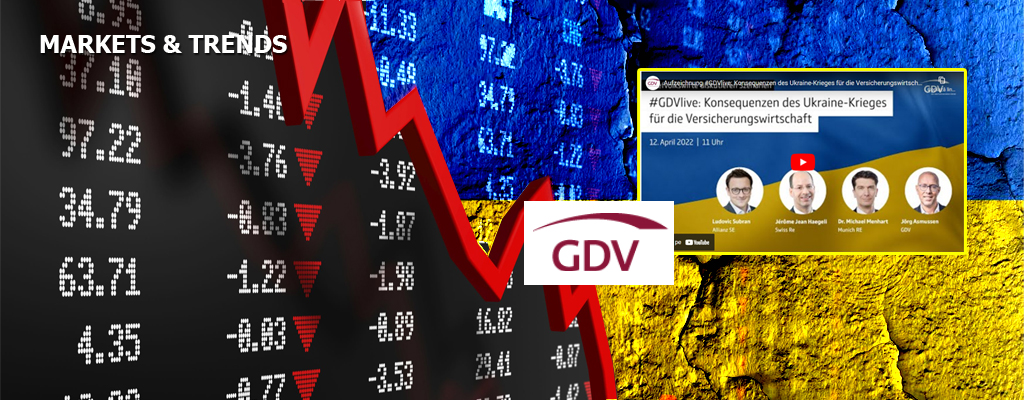"Hopes for a post-corona economy have evaporated," Ludovic Subran, chief economist at Allianz SE told German Insurers Association (GDV) General Manager Joerg Asmussen in the videorecorded discussion that has reunite also Jerome Jean Haegeli, chief economist at Swiss Re and Michael Menhart, chief economist at Munich RE.
High inflation adds to the above-mentioned major risks for the sector. In March, inflation in the euro zone rose to a record 7.5% - mainly driven by higher energy and commodity prices and expectations are that the price increase could even worsen, depending on the further course of the war and a possible tightening of sanctions against Russia. In view of the high inflation, fiscal policy is again becoming more important. The three chief economists spoke of a so-called "regime shift" away from monetary policy as "the central banks can hardly dampen the current upward pressure on prices with their resources." "We can't cap energy prices, so we have to help those in need," Subran said while Haegeli summarized: "Inflation is now global enemy No.1"
Yet, despite the rather high price paid by Europeans, further steps against Russia are necessary up to the measures that can put halt to large sums that Russia is earning for its energy exports on daily basis. However, such measures will put a large burden, with a strong social impact: "For every 1% reduction in energy supply, 30,000 manufacturing jobs would be lost, Subran said. "The price of war is high, for companies as well as families," said Allianz's chief economist emphasizing that Russia's strong energy dependency is a shocking moment for Germany, comparable to the fiscal imbalance in Greece in 2011. In the end, in the long-term, this may lead to a total change of the German economy's model and international trade relations.
On the opportunities side, the economies cited the strengthening European cohesion, eventually leading to a coordinated European approach to fiscal policy. "With their capital strength, insurers could also make an important contribution to the forthcoming realignment of energy policy," the three chief economists said. Another positive outcome may that the European Central Bank is under increasing pressure to raise interest rates. "2022 may be the year in which we say goodbye to a negative interest rate environment in Europe, too," said Swiss Re's Haegeli.
The full video recording of the discussions is available, in German, on the GFV website here.
2911 views


